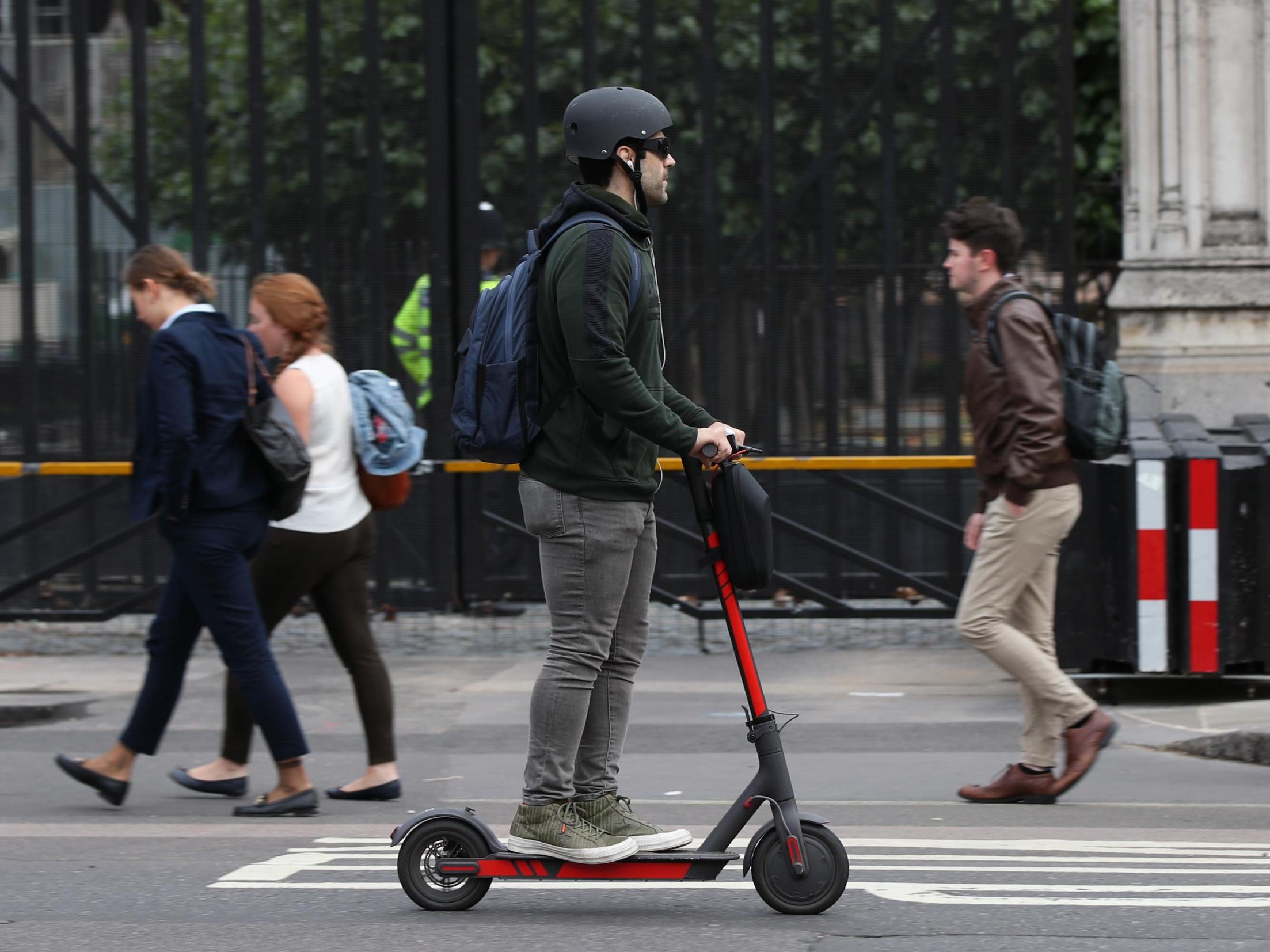Electric scooters could soon be legal on UK roads
Shift to the green two-wheelers could make roads safer, say industry figures

Electric scooters could soon be made legal on roads in the UK and start replacing petrol-fuelled mopeds as part of a £90m plan to revolutionise how the country moves and help meet its net-zero emissions target.
Within a broad review of transport regulations, the government has identified three new areas that will serve as testing grounds for a range of new measures aimed at improving transport safety, efficiency and environmental sustainability in urban spaces.
Alok Sharma, secretary of state for Business, Energy and Industrial Strategy, who will also chair the annual UN climate talks in Glasgow next November, said that decarbonising transport is key to ending the UK’s contribution to climate change.
“This review could drive down transport emissions by making greener ways to travel available to more people,” he said. “Future Transport Zones will also help to spur low carbon innovation by providing our best and brightest researchers with testing facilities for the clean transport technologies of the future.”
Last year, scooter and moped sales amounted to over 25,000 units, against 32.5 million cars currently on the road. Despite being a relatively small segment of the transport sector, electrifying two-wheel mobility has important strategic advantages, according to Toni Campbell, chief executive of the Motorcycle Industry Association. “The future of transportation, especially in cities, doesn’t lie in the car anymore,” he told The Independent. “There is a push to diversify urban transportation.”
When cars first became affordable a few decades ago, he said, families quickly became used to the comfort of a big vehicle. “But in today’s cities, the downsides are huge: congestion, air pollution and concerns around climate change,” he said.
“Large vehicles don’t make sense when you have a lot of cars being used by a single passenger. There has to be a change of culture, and manufacturers need to come up with products that encourage people to step out of the car.”
Electric two-wheelers, he said, don’t require installing a network of charging points across the city, something that would be necessary to deploy electric cars at scale. “Many of these smaller electric vehicles can be charged at home through a normal plug, and when you get to your destination you can remove the battery and charge it in the office under your desk,” Mr Campbell said.
He acknowledged that e-scooters are not traditionally popular in the UK due to safety concerns, however “if you create a different road environment where there is space for these vehicles, then they make a sensible solution. I hope that the government is seeing the problem this way.”
Andy Eastlake, managing director of the public-private accelerator Low Carbon Vehicle Partnership, told The Independent that two-wheelers make sense in the context of an integrated urban mobility, where people can mix private and public transportation, but there are regulatory gaps that still need to be addressed, such as scooter speed and braking performance. “Obviously you want your vehicle to be fast enough to be compatible with traffic on the road, but if it’s going to move on the pavement you need it not to be too fast.”
He explained the slow uptake of electric two-wheelers in Britain saying that “the UK government has been sitting on the sidelines and looking at other countries to try and understand how they have dealt with the various issues”, and now the time is right to adapt the lessons learned to the national environment, as part of the broad consultation.
The government trial will include drones adapted to carry medical supplies from the Isle of Wight to hospitals in the mainland, which would eventually be able to transport chemotherapy kits much faster than by road and ferry.
Commuters in west England, one of the designated trial zones, may soon have access to an app able to book one journey across multiple modes of transport, and may be the first to travel on a self driving car connecting Bristol Airport, central Bath and the Northern Arc.
Join our commenting forum
Join thought-provoking conversations, follow other Independent readers and see their replies
0Comments